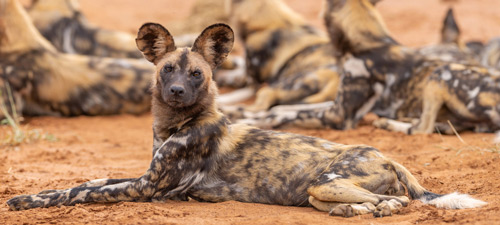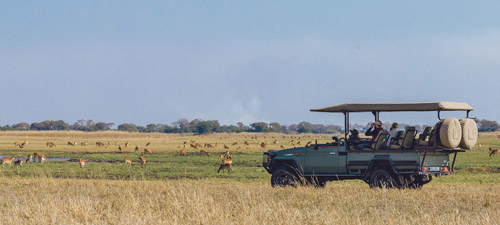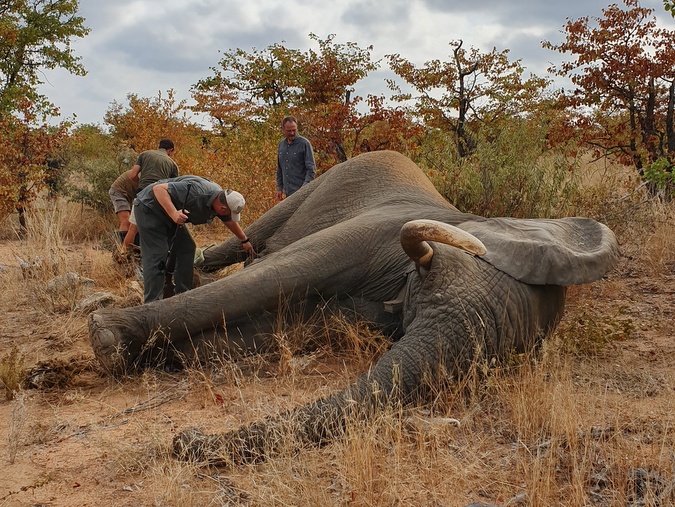
WARNING: CONTAINS GRAPHIC CONTENT
Earlier this week Elephants Alive discovered one of their collared elephant bulls seriously injured in Umbabat Private Nature Reserve (UPNR). Not knowing the cause of the injury, they immediately got in touch with the warden of the reserve, Bryan Havemann, who, after an assessment of the bull, secured a permit from Mpumalanga Tourism and Parks Agency (MTPA) for the team and vets to intervene.
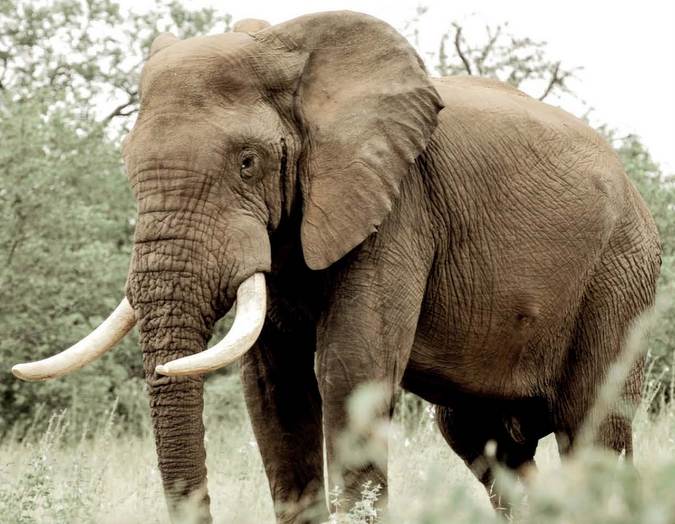
The elephant in question is known as Matambu, a bull in his prime but with failing eyesight. He is considered to be placid in nature and quite docile, which made darting him on foot relatively stress-free and quick by a team that included Wildvets, Dr Joel Alves and Havemann.
“The reserve doesn’t normally intervene when injuries are as a result of natural causes,” said Havemann, “but in Mutambu’s case we couldn’t be sure what the cause of the injury was until the wounds were assessed”.
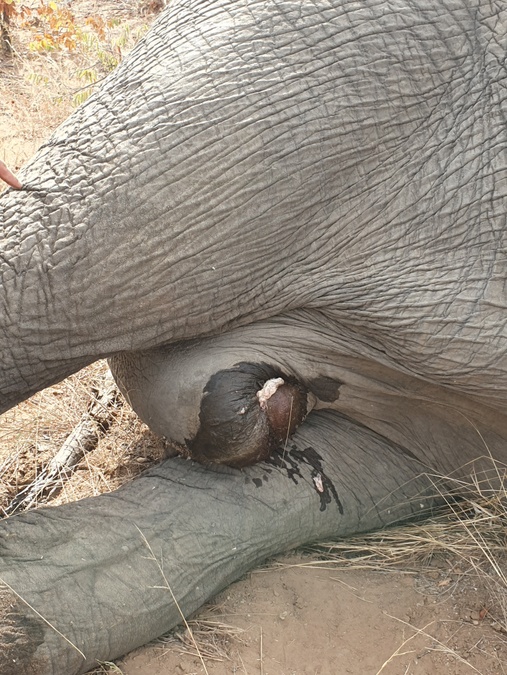
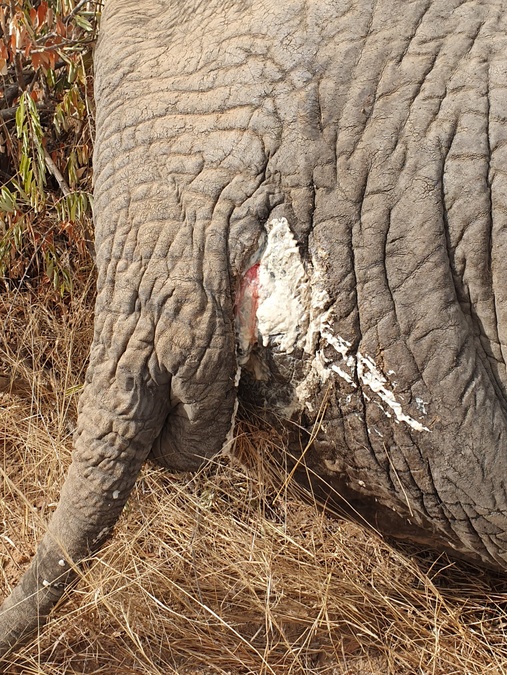
It was established during Matambu’s assessment that the injuries to his genital and rump area were most likely caused by the tusk of another elephant bull.
First collared in 2006 by Elephants Alive, Matambu has proved to be vital to their studies. He has partial sight in one eye (which has a cataract), and blind in the other. This was discovered in 2017 during a routine change of batteries in his collar when a veterinary ophthalmologist was called in to assess him. Neither eye is likely causing him any pain or distress, however, the cataract will likely cause complete blindness over time.
Once Elephants Alive discovered that Matambu was seriously injured, they felt it was important to intervene to treat him as he is an important study animal. Aside from this serious injury, he is in relatively good health.
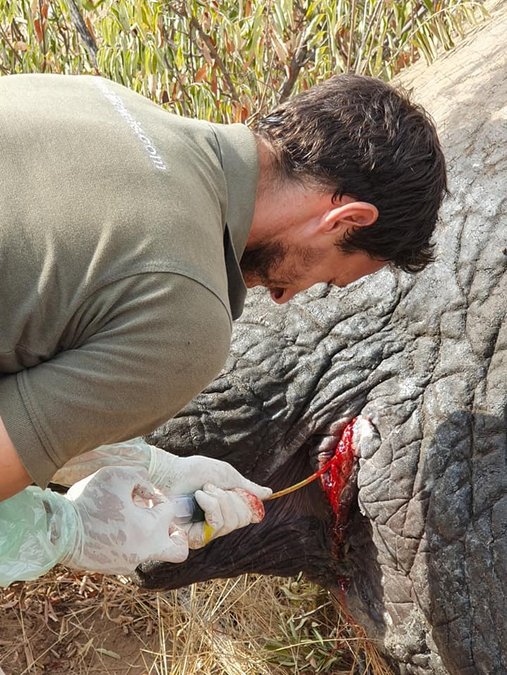
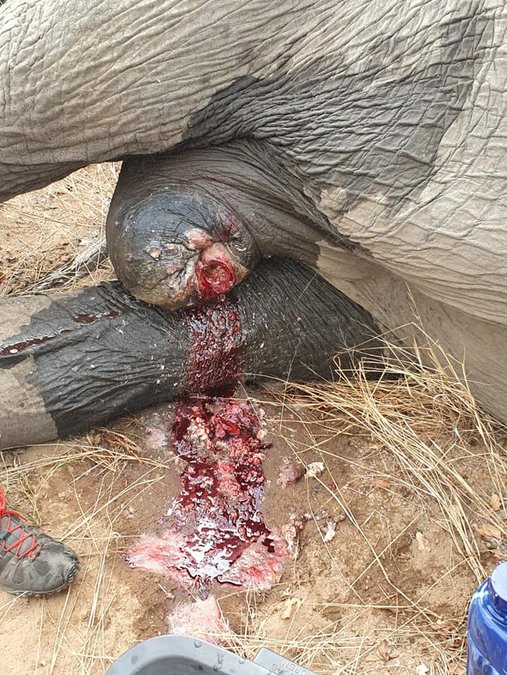
After an hour of being tranquillised and successfully treated, Matambu woke up and slowly walked away to live another day. Elephants Alive and the reserve will continue to monitor his recovery.
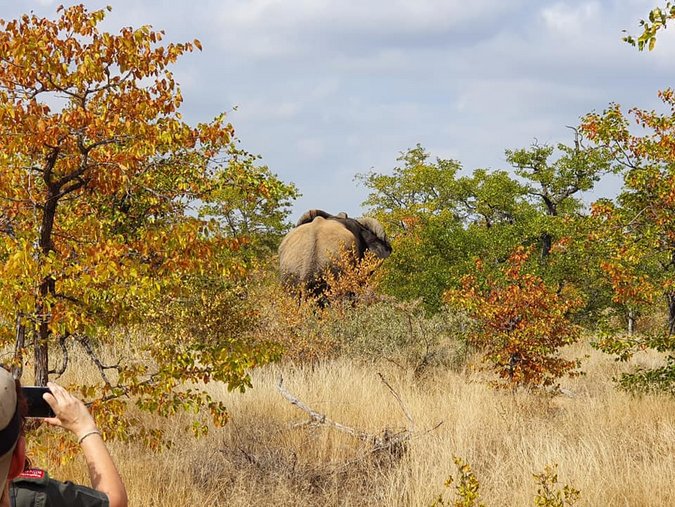
To comment on this story: Login (or sign up) to our app here - it's a troll-free safe place 🙂.![]()



